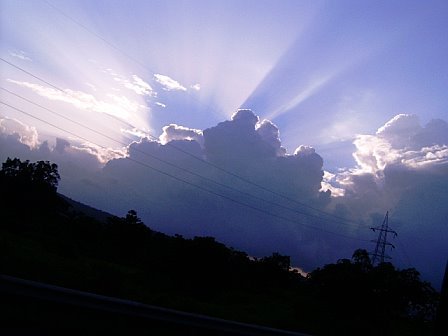Still not sure what to do this weekend, Sept 25 – 27th? Come on out to Fredericksburg and join Public Citizen Texas at the 10th annual Renewable Energy Roundup and Green Living Fair!
Over the past 10 years, this community and family oriented Green Living Fair has grown to be the largest “green show” in the South. You can see the latest in eco-friendly technologies, learn how to save and create your own energy, attend informative talks by the experts, and visit with vendors to see contemporary green living and sustainability practices. It’s fun, environmentally friendly, and a great place tolearn how you can make a difference!
Aside from meeting with your friends at Public Citizen, at the Roundup you’ll be able to learn about:
Solar – Wind – Geothermal – Water Use & Reuse – Energy Conservation – Rainwater Harvesting – Green & Sustainable Building – Organic Growing – Alternative Transportation – Straw Bale Construction – Exhibits – Recycling – Composting – Eco Friendly Products – Natural & Organic Cooking Demonstrations – Educational Family Activities – Veggie, Organic and Natural Food Court
The gate entry fee is $10 Friday, $12 Saturday, and $10 Sunday – or get a three day pass for just $20. Children under 12 can enter free of charge.
Show Hours are: Friday – September 25, noon to 6 pm; Saturday – September 26, 9 am to 6 pm; Sunday -September 27, 9 am to 3 pm
Representatives from Public Citizen and our sister group, the Sustainable Energy and Economic Development (SEED) Coalition, will also be giving talks and presentations at the round up. Look for our director, deputy director, and the director of SEED at the following times:
Friday, 3:00 – 4:00: Karen Hadden – Why Efficiency & Renewables Are The Answer
Saturday, 3:00 – 4:00: Tom “Smitty” Smith – Creating New Energy Districts For Texas
Sunday, 10:00 – 11:00: David Power – Smart Meters & Net Metering
Hope to see you there!
Read Full Post »
 This past summer, interns in Public Citizen‘s Texas office were busy calling utility companies (including rural electric cooperatives and municipally owned utilities) to find out what their policies were on net-metering.
This past summer, interns in Public Citizen‘s Texas office were busy calling utility companies (including rural electric cooperatives and municipally owned utilities) to find out what their policies were on net-metering.  This afternoon, the Senate has
This afternoon, the Senate has  During these dark, cloudy times at the Texas legislature, Senator Fraser can shine a ray of hope into the Senate chamber. He can create a pool of $500 million in solar rebates over the next 5 years, start a pilot program to put solar on schools, and create as many as thousands of green, local jobs in one fell swoop. He can fix net metering so that individuals get a fair buy-back for the excess electricity they produce and actually have an incentive to shell out the cash for a new solar installation. He can also ensure that Texas ends up with an additional 500 MW of non-wind renewables.
During these dark, cloudy times at the Texas legislature, Senator Fraser can shine a ray of hope into the Senate chamber. He can create a pool of $500 million in solar rebates over the next 5 years, start a pilot program to put solar on schools, and create as many as thousands of green, local jobs in one fell swoop. He can fix net metering so that individuals get a fair buy-back for the excess electricity they produce and actually have an incentive to shell out the cash for a new solar installation. He can also ensure that Texas ends up with an additional 500 MW of non-wind renewables. Thanks to Luke Metzger at the
Thanks to Luke Metzger at the  Time for a Friday wrap-up, all the news that’s fit to link:
Time for a Friday wrap-up, all the news that’s fit to link: This Tuesday I spoke at the PUC’s public hearing on
This Tuesday I spoke at the PUC’s public hearing on 

